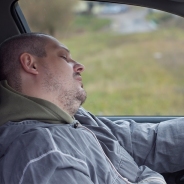WHAT IS SLEEP APNEA
Sleep apnea is a breathing disorder that occurs when breathing is interrupted during sleep. It affects millions of people worldwide and most of them may not even be aware that they suffer from the condition.
Breathing stops several times, sometimes every minute, throughout the night, preventing people from getting enough oxygen. These interruptions to your breathing can last from a few seconds to more than a minute many times an hour. Imagine not breathing for 15-60 times over several hours through the night!
TYPES OF SLEEP APNEA AND THEIR CAUSES
There are two main types of sleep apnea: obstructive sleep apnea and central sleep apnea.
Obstructive Sleep Apnea (OSA)
This is the most common type of sleep apnea due to obstruction in the throat which blocks the airway during sleep. Breathing pauses approximately 10 to 60 seconds between loud sounds that have been described as snores, snorts, gurgles, and gasping for air.
The narrowing of the upper airway can be a result of several factors:
- inherent physical characteristics like narrow or crooked airway passages
- excess weight with heavy throat tissue that collapse while sleeping
- smoking which damages airway passages
- alcohol consumption which may cause loss of firmness around throat muscles
Central Sleep Apnea (CSA)
This is caused by a delay in the signal from the brain to the lungs. As a result, your lungs ‘forget’ to breathe while you sleep. This is a rare type of sleep apnea and if our portable PSG detects it, we will refer you back to your GP as this may signal deeper health conditions relating to the heart and brain.
With both obstructive and central apnea, your brain, not getting enough oxygen, must wake you up briefly to breathe — sometimes hundreds of times during the night. These arousals are not gentle episodes of awakening, but are characterised by jerks, gasping, snorts, and gurgles, and are accompanied by spikes in blood pressure and heart rate. Usually there is no memory of these brief awakenings.
So the difference between OSA and CSA:
- Obstructive sleep apnea occurs when the muscles in the throat relax and block the airway.
- Central sleep apnea occurs when the brain does not send signals to the muscles to breathe.
Our service focuses mainly on OSA, obstructive sleep apnea, as it is more common and easier to treat.
SYMPTOMS
Sleep apnea happens only while you’re sleeping. You probably wouldn’t know you had it until your bed partner or a family member pointed it out to you. They’re bothered by your snoring and the sounds you make. And they will tell you that they witness that you stop breathing during sleep followed by gasping and snorting.
Here’s a video showing OSA episodes. Note that no snoring occurs during the worse apnea events because the airway is completely closed. But the person is struggling hard to breath, as seen by the effort of his chest. Our appreciation to the owner of this video for posting it.
If you don’t have anyone in your household who witnesses your breathing stops, the following symptoms will give you a hint that you may have sleep apnea.
- You know that you snore loudly.
- You wake up frequently during the night.
- You wake up feeling fatigued.
- Chronic daytime sleepiness and tiredness.
- Difficulty concentrating during the day.
- You’re irritable and depressed.
- You find you can’t cope with problems well.
- You notice you have mood swings.
To be sure that you have sleep apnea and to measure its severity, you can request for a polysomnogram, otherwise known as a sleep study or a sleep test.
HOW SLEEP APNEA AFFECTS YOU
 Too often, a lot of people think their problem is simply a bad case of snoring. If left untreated, however, sleep apnea can lead to serious health problems such as high blood pressure, heart disease, diabetes, stroke, brain damage, and even death. You can learn more about the problems arising from untested and untreated sleep apnea here.
Too often, a lot of people think their problem is simply a bad case of snoring. If left untreated, however, sleep apnea can lead to serious health problems such as high blood pressure, heart disease, diabetes, stroke, brain damage, and even death. You can learn more about the problems arising from untested and untreated sleep apnea here.
Sleep apnea can also affect you outside of your health. And although this aspect of sleep deprivation is not often spoken about, its effects on personality and behavior are just as important.
For example, sleep deprivation can lead to fatigue during the day making it difficult to concentrate and make it harder to focus on tasks. It can also cause mood swings and irritability, and difficulty controlling their emotions. Accidents that costs lives and loss or damage to property and businesses can also be blamed on sleepiness and fatigue.
